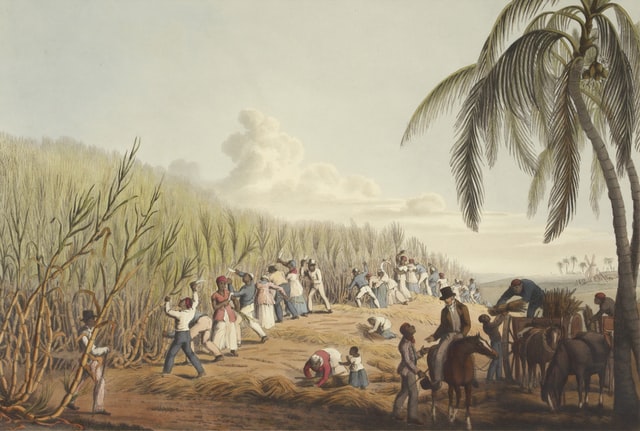Slavery, Difference of Meaning in America and Muslims
Introduction
According to the Concise Oxford English Dictionary, a slave is a ‘person who is the legal property of another or others and is bound to absolute obedience’ (Archer, 1988). Slavery can be described as an organization that is founded on a relationship of control and obedience. This organization allows one person to own another person to misuse his abilities for labor and other personal matters. Not only can slavery is founded in the low material cultures like those in the Malay Peninsula but it can also be found in highly modernized and developed cultures like those existing in the southern United States. This inhumane institution has also got its roots in the Muslim world (“slavery,” 2013).
Difference of Purpose
By a long way, the mentioned institution and trade is more prevalent in Americas and the Muslim world and both the East and West have their own characteristics as far as slavery is concerned. In Americas, a good number of workers were used to of working on plantations (tobacco, sugar etc.) and were given a small amount of money for their services. However, the capturing of slaves in the Muslim world had two purposes. The first one was to, of course, making them do various domestic and outside tasks and the other purpose was to teach them about Islam so that they could convert willingly (Rodriguez, 1997).
Difference in Treatment
One of the basic differences between the slavery among the two parts of the world is that slavery in Islamic world continued for more or less a century than in the West. It is not a difficult task to get hold of the facts about how slavery was practiced in the two corners of the world. The rich in Americas treated slaves like pathetic machines who were purchased with the intention of completing works in the fastest manner possible. On the other hand, the rich Muslims were used to of buying slaves so that they could influence them to convert to Islam without using force (Rodriguez, 1997).
Another difference between the practices of slavery lies in the fact that the two worlds treated the slaves in a completely different manner. Slaves in America were treated with the most horrible treatment one could imagine. People were snatched away from their families to be made slaves and were given sadistic punishments like cutting off of feet, continuous whipping, burning them till they die etc. Black slaves were treated more brutally and fiercely as they were considered the lesser race. On the other hand, slaves in the Muslim world were treated in a kind and compassionate manner as instructed by God and the Prophet Muhammad (Peace be upon him). Slaves were simply regarded as people who belonged to a different faith if they weren’t Muslims. Treatment was fair and they were not starved or burnt to death or whipped or beaten. The Muslims followed the instructions of Allah and did not treat their slaves wrongly. The Islamic history tells one hundreds of true events where slaves were only bought to make them invite to Islam (Rodriguez, 1997).
Difference in Freedom
Whereas affluent in the Americas kept slaves to work on plantations in order to gain profits, keeping slaves in the Muslim world was just a sign of wealth and prosperity. It is easily observable that “in Muslim countries, slavery and freedom had a much more fluid boundary than in the West, with some slaves and former slaves reaching positions of great power and prestige” (“slavery,” 2013). The Blacks and Afro-Americans are still living a lower-class lie in the European world. However, in most parts, the descendants of the African slaves have been able to attain considerable levels of socio-economic mobility, political power, and cultural assimilation in the societies. Their legacies are not as same as their forefathers who lived and died a miserable life.
References
Archer, L. J. (1988). Slavery and Other Forms of Unfree Labour. New York: Routledge.
Rodriguez, J. P. (1997). The Historical Encyclopedia of World Slavery. Santa Barbara, Calif.: ABC-Clio.
slavery from The Columbia Encyclopedia, 6th ed.. (2013). Questia. Retrieved October 18, 2013, from http://www.questia.com/read/1E1-slavery/slavery
Home » Research »

